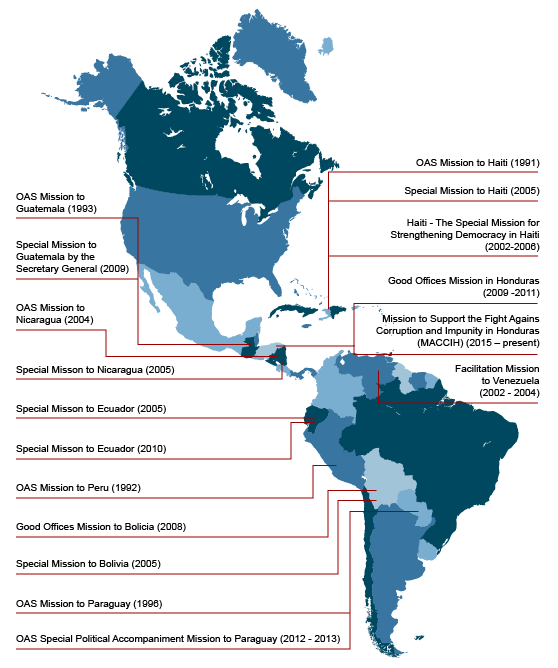| Home |
| OAS Political Missions Map |
|
With the return of democracy to the region in the 80s and 90s, the OAS repositioned itself as the premier forum for multilateral dialogue and political consensus in the region. It helped diffuse more than a dozen attempts at altering the democratic order by invoking in the 1990s Resolution 1080, a mechanism designed to condemn and punish threats to democracy, and, as of 2001, by appealing to the Inter-American Democratic Charter, an OAS instrument which defines democracy and specifies how it should be defended when it is under threat. In all these cases, the OAS deployed good offices and facilitation missions to the affected countries and played a decisive role in resolving the complex political and institutional crises that had occurred. Below you will find a description of these Missions. 
|
||||||||||||||||||||||||||||||||||||||||||||||||||

